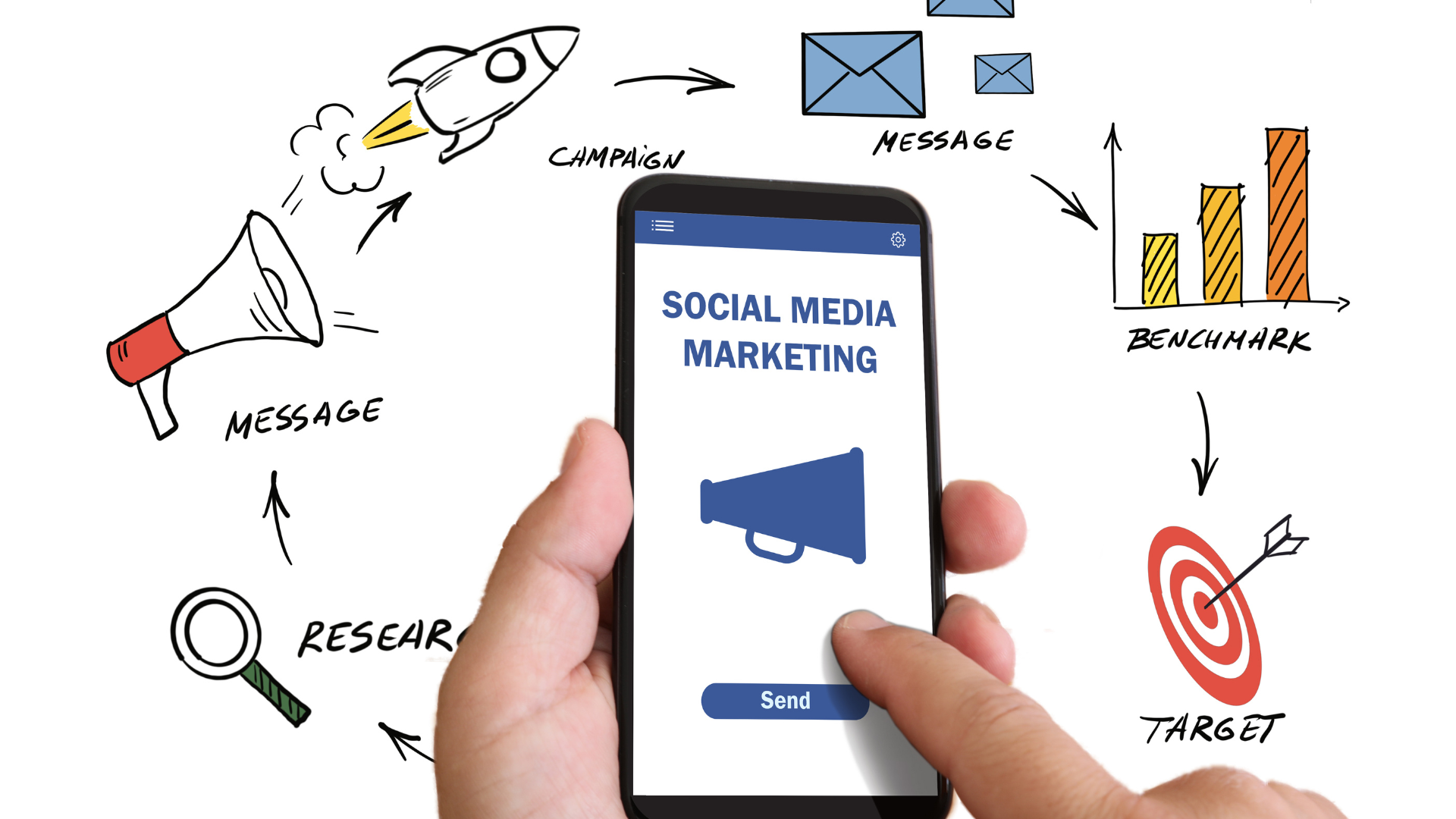How to Master the Art of Digital Marketing For Your Business
How to "Mastering the Art of Digital Marketing: A Comprehensive Guide" - a must-read for anyone looking to unlock the power of digital marketing. This article will delve into online advertising, social media, content marketing, and more, providing you with the knowledge and strategies needed to succeed in the fast-paced digital landscape.
With the rapidly evolving online ecosystem, it's essential to have a deep understanding of digital marketing techniques that garner results. Whether you're a seasoned marketer or just starting, this guide will equip you with the tools necessary to stay ahead of the competition.
Throughout the article, we will explore various tactics, case studies, and best practices to help you optimize your online efforts. We have you covered, from building a strong social media presence to implementing effective SEO strategies.
Are you ready to take your digital marketing skills to the next level? Let's dive in and unlock the secrets of mastering the art of digital marketing.
The importance of digital marketing for businesses

In today's digital age, having a strong online presence is crucial for businesses of all sizes. Digital marketing offers a cost-effective way to reach a vast audience and connect with potential customers. It allows businesses to target specific demographics, track their marketing efforts, and adjust strategies accordingly.
One of the key benefits of digital marketing is the ability to reach a global audience. Traditional marketing methods limited businesses to a local or regional reach. However, digital marketing opens up possibilities, allowing businesses to expand their reach and tap into new markets.
Furthermore,
digital marketing
provides measurable results. Unlike traditional marketing methods, where it can be challenging to track the success of campaigns, digital marketing offers real-time data and analytics. This enables businesses to monitor the performance of their campaigns and make data-driven decisions to optimize their marketing efforts.
Understanding the customer journey in digital marketing

To effectively reach and engage with your target audience, it's crucial to understand the customer journey in the digital marketing landscape. The customer journey consists of several stages: awareness, consideration, and decision-making.
During the awareness stage, customers become aware of their needs or problems. At this stage, creating content that educates and informs potential customers about their pain points and offers potential solutions is essential.
In the consideration stage, customers research and evaluate different options. This is where businesses need to provide valuable content that showcases their expertise and differentiates them from competitors. Case studies, testimonials, and product comparisons can be effective in this stage.
Finally, in the decision-making stage, customers are ready to purchase or take action. At this point, businesses must provide clear calls-to-action, compelling offers, and a seamless user experience to encourage conversions.
By understanding the customer journey and tailoring your digital marketing efforts to each stage, you can effectively guide potential customers towards purchasing or taking the desired action.
SEO: Optimizing your website for search engines

Search Engine Optimization (SEO) is a fundamental aspect of digital marketing. It involves optimizing your website and content to rank higher in search engine results, driving organic traffic and visibility.
To start with SEO, it's crucial to conduct keyword research and identify the keywords and phrases your target audience uses to search for products or services related to your business. Incorporate these keywords in your website content, meta tags, headings, and URLs.
Another important aspect of SEO is creating high-quality, valuable content relevant to your target audience. This helps improve your website's ranking and establishes your business as an authority in your industry.
In addition to on-page SEO, off-page SEO techniques such as link building and social media mentions can boost your website's visibility and authority. Building backlinks from reputable websites and engaging with your audience on social media platforms can improve your search engine rankings.
It's important to regularly monitor your SEO efforts and make necessary adjustments based on analytics data. SEO is an ongoing process, and staying updated with the latest trends and algorithm updates is crucial for long-term success.
Content marketing: Creating valuable and engaging content

Content marketing is critical in digital marketing, allowing businesses to provide valuable information to their target audience while establishing trust and credibility. By creating high-quality content, businesses can attract and retain their audience, ultimately driving conversions.
When creating content, it's important to understand your target audience's needs and pain points. Conducting audience research and developing buyer personas can help you create content that resonates with your audience and addresses their specific challenges.
In addition to written content, consider incorporating different content formats such as videos, infographics, and podcasts to cater to different audience preferences and increase engagement.
To maximize the reach and impact of your content, it's essential to promote it through various channels. Share your content on social media platforms, collaborate with influencers, and leverage email marketing to reach your audience effectively.
Regularly analyze the performance of your content using analytics tools. Identify which types of content perform best and tailor your content strategy accordingly. You can build brand awareness, establish thought leadership, and drive customer engagement by consistently creating valuable and engaging content.
Social media marketing: Leveraging the power of social platforms

Social media has revolutionized the way businesses connect with their audience. With billions of active users across various platforms, social media marketing has become essential to any digital marketing strategy.
When implementing social media marketing, choosing the platforms that align with your target audience and business objectives is important. Each platform has its unique features and user base, so it's crucial to understand where your target audience spends their time.
Creating a strong social media presence involves consistently sharing relevant and engaging content, interacting with your audience, and leveraging social media advertising to reach a wider audience. It's important to balance promotional content and providing value to your audience.
Social media platforms also offer robust analytics tools that provide insights into your audience's behaviour and preferences. Use these insights to refine your social media strategy and optimize your content for maximum engagement and reach.
Lastly, keep up with the latest social media trends and updates. Social media platforms are constantly evolving, and staying informed about new features and best practices will help you stay ahead of the competition and effectively leverage the power of social media marketing.
Email marketing: Building and nurturing customer relationships

Email marketing remains one of the most effective digital marketing channels for building and nurturing customer relationships. By leveraging email campaigns, businesses can engage with their audience, drive conversions, and encourage repeat business.
When implementing email marketing, building a targeted and segmented email list is important. This allows you to tailor your messages and offers to specific audience segments, increasing the relevance and effectiveness of your campaigns.
Personalization is key in email marketing. Use the recipient's name, segment your list based on interests or behaviour, and send personalized recommendations and offers. This helps create a personalized experience for your audience and increases the likelihood of engagement.
Automation is another crucial aspect of email marketing. Set up automated email sequences to welcome new subscribers, nurture leads, and re-engage dormant customers. Automation saves time and ensures consistent communication with your audience.
Regularly analyze the performance of your email campaigns. Pay attention to open rates, click-through rates, and conversion rates. Use A/B testing to refine your email content and strategies for optimal results.
Remember, building and nurturing customer relationships is a long-term effort. Use email marketing to provide value to your audience, establish trust, and keep them engaged with your brand.
Measuring and analyzing the success of your digital marketing efforts

To ensure the effectiveness of your digital marketing efforts, it's crucial to measure and analyze the results. By tracking key performance indicators (KPIs) and analyzing data, you can identify what's working and needs improvement in your digital marketing strategy.
Start by defining your goals and objectives. What do you want to achieve with your digital marketing efforts? Whether it's increasing website traffic, generating leads, or driving sales, clearly define your goals to measure success accurately.
Utilize analytics tools to track and measure important metrics such as website traffic, conversion rates, bounce rates, and social media engagement. These insights provide valuable information about your audience's behaviour, preferences, and the effectiveness of your marketing campaigns.
Regularly review your data and identify trends and patterns. Look for opportunities to optimize your marketing efforts based on the data. For example, a high bounce rate on a particular landing page may indicate that the page needs improvement.
Experiment with different strategies and tactics, and use A/B testing to compare the performance of different elements such as headlines, call-to-action buttons, or email subject lines. Continuously iterate and improve your digital marketing strategies based on data-driven insights.
Remember, digital marketing is an ever-evolving field; staying informed about the latest trends and best practices is essential. By continuously measuring and analyzing the success of your digital marketing efforts, you can adapt and optimize your strategies for maximum impact.
Congratulations! You've completed the comprehensive guide to mastering the art of digital marketing. By understanding the importance of digital marketing, the customer journey, and various digital marketing tactics, you are well-equipped to navigate the fast-paced digital landscape.
Remember, digital marketing is a continuous learning process. Stay curious, experiment with different strategies, and stay updated with digital marketing trends. Dedication and perseverance can achieve remarkable results and propel your business to new heights in the digital realm.
Frequently Asked Questions
What is digital marketing and how can it help my business?
Digital marketing uses online platforms like Google, social media, and email to attract new leads and grow your brand visibility — especially valuable for service-based and local businesses.
Do I need digital marketing if I already get referrals?
Yes. Referrals are great, but digital marketing creates consistent, scalable lead generation so you’re not relying on word of mouth alone. It helps you grow on your terms.
What’s the difference between SEO and Google Ads?
SEO improves your rankings in organic search over time, while Google Ads can get you on Page 1 instantly with paid results. Most businesses benefit from both for short- and long-term gains.
How do I know which digital marketing service is right for me?
We start with a strategy session to understand your goals, then tailor a solution — whether that’s local SEO, Google Ads, email campaigns, or a full digital overhaul.
How long does it take to see results?
Google Ads can start generating leads in a few days. SEO and organic strategies take longer — usually 3–6 months — but deliver compounding growth over time.
Will I get reports or updates?
Absolutely. We provide clear, jargon-free performance reports so you know exactly what’s working and where leads are coming from.
Can you manage everything for me?
Yes. From building your website to running ads and tracking calls, we handle your digital marketing so you can focus on doing great work.

